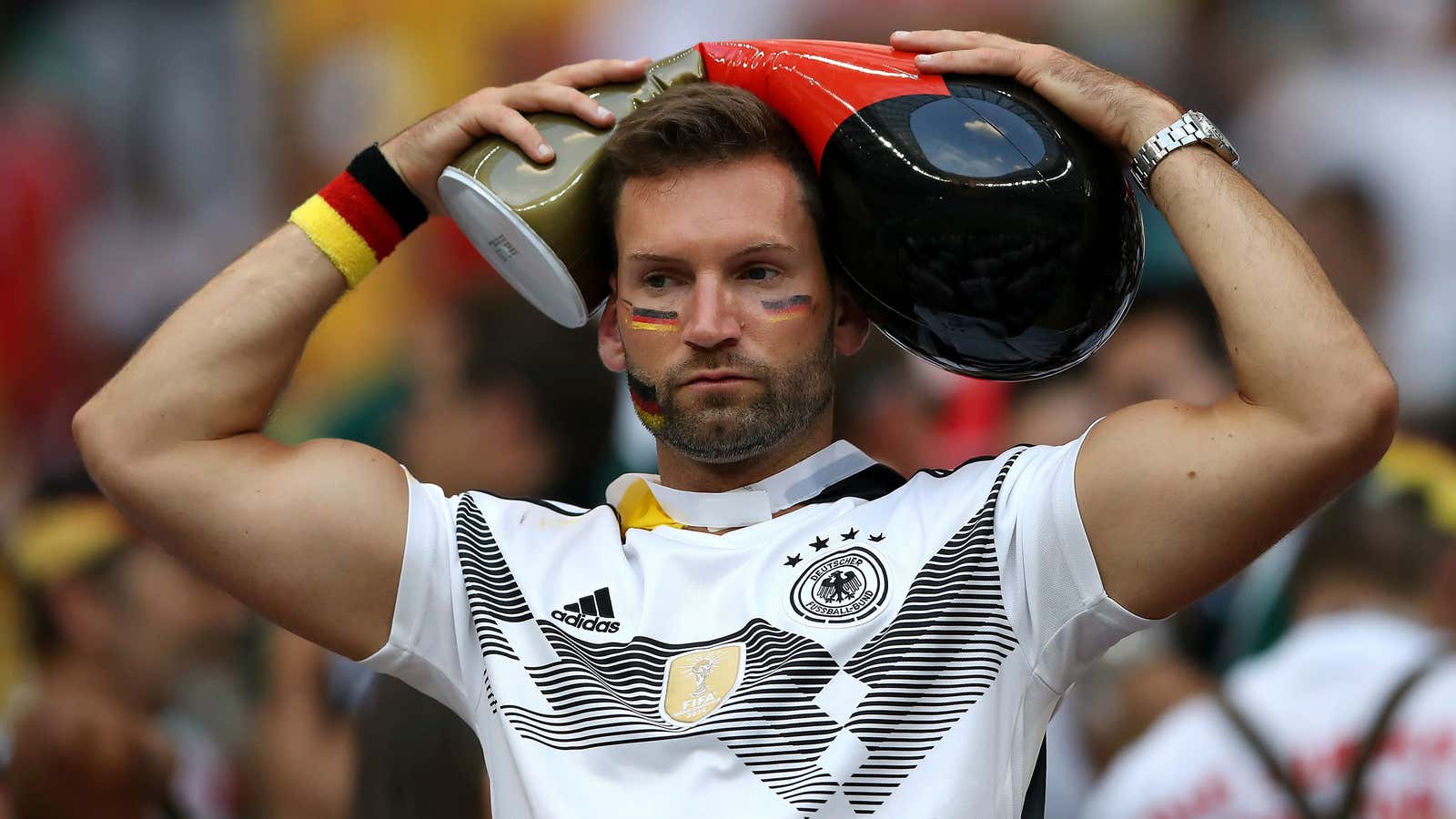Germany is dealing with the national shame of Auftaktniederlage.
Or “loss in the first game of a competition,” that is. Germany’s first match of this World Cup was against Mexico, and the Germans were expected to win. They didn’t, but at least they know exactly how to talk about it. The compound word Auftaktniederlage is appearing across German media, on Twitter, and beyond.
It is the first time this word has been rolled out at a World Cup since 1982, when West Germany suffered an upset at the hands of Algeria, losing 2-1. Unlike the English phrase “opening loss,” this word carries the historical baggage of past Auftaktniederlage that many Germans have not forgotten (link in German).
The German language has a distinct ability to combine nouns into something greater than the sum of those parts. The two nouns in this case are Auftakt and Niederlage, meaning “opening” and “defeat.” Together, they express the concept of an opening loss in a competition or season.
Similarly constructed compounds include Backpfeifengesicht and Schadenfreude. The first combines the units “slap across the cheek” and “face” to create the concept of a “face that invites slapping.” (It has been used to describe Ted Cruz.) Schadenfreude, which is now commonly used in English, combines schaden (“damage/harm”) with freude (“joy”) to form the concept of feeling glee at the misfortune of others. That might be how Mexican fans were feeling toward Germany when they celebrated a goal with enough vigor to set off earthquake monitors.
Germany should remain optimistic though—after the Auftaktniederlage of 1982, they managed to make it all the way to the final, in part by roughing up the French.
